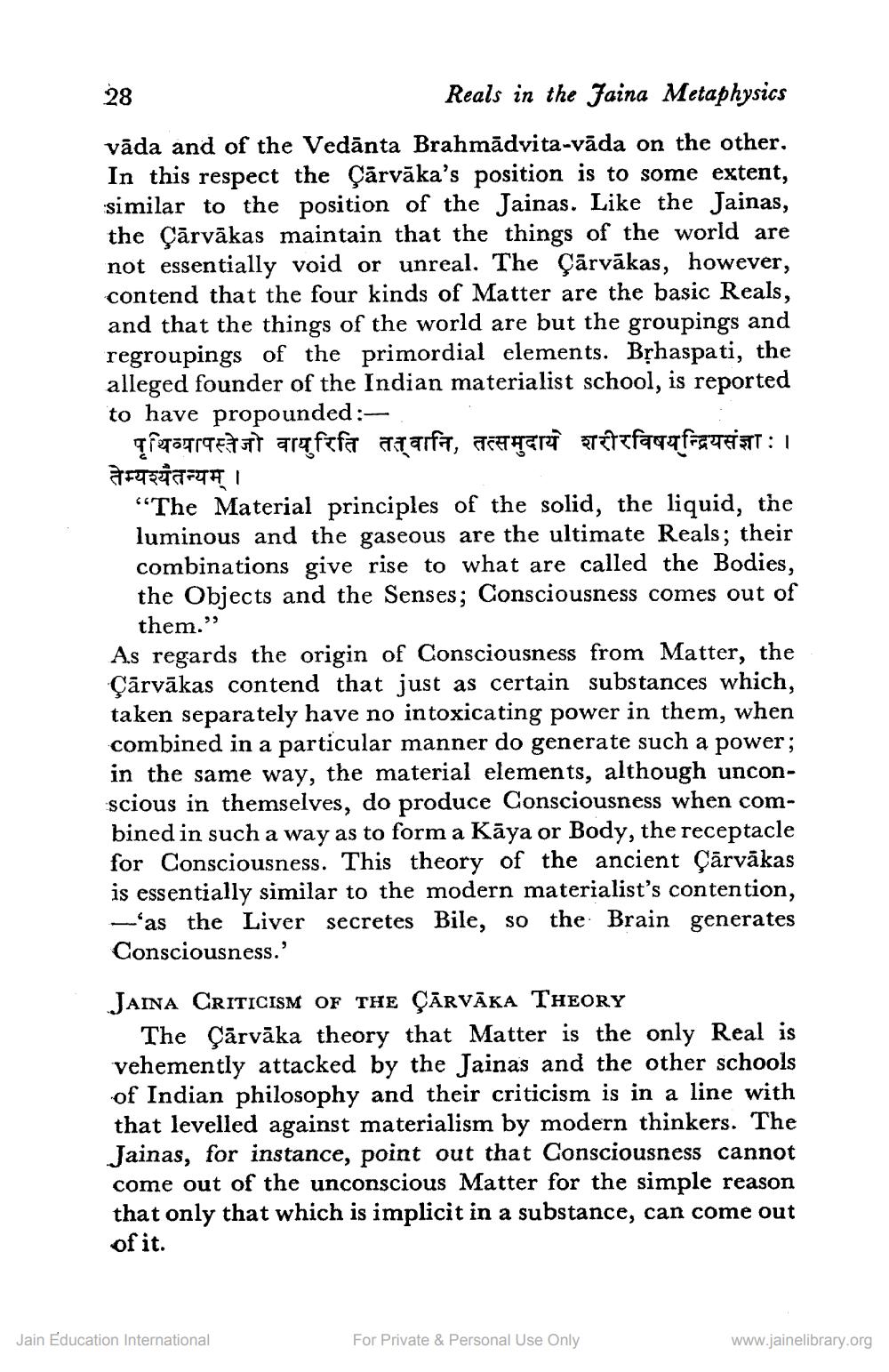________________
28
Reals in the Jaina Metaphysics
vāda and of the Vedānta Brahmädvita-vāda on the other. In this respect the Çārvāka's position is to some extent, similar to the position of the Jainas. Like the Jainas, the Çārvākas maintain that the things of the world are not essentially void or unreal. The Çārvākas, however, contend that the four kinds of Matter are the basic Reals, and that the things of the world are but the groupings and regroupings of the primordial elements. Byhaspati, the alleged founder of the Indian materialist school, is reported to have propounded:
पृथिव्यापस्तेजो वायुरिति तत्वानि, तत्समुदाय शरीरविषयन्द्रियसंज्ञा : । तेम्यश्यैतन्यम् ।
“The Material principles of the solid, the liquid, the luminous and the gaseous are the ultimate Reals; their combinations give rise to what are called the Bodies, the Objects and the Senses; Consciousness comes out of
them.” As regards the origin of Consciousness from Matter, the Çārvākas contend that just as certain substances which, taken separately have no intoxicating power in them, when combined in a particular manner do generate such a power; in the same way, the material elements, although unconscious in themselves, do produce Consciousness when combined in such a way as to form a Kāya or Body, the receptacle for Consciousness. This theory of the ancient Çārvākas is essentially similar to the modern materialist's contention, -'as the Liver secretes Bile, so the Brain generates Consciousness.' Jaina CRITICISM OF THE ÇĀRVĀKA THEORY
The Çārvāka theory that Matter is the only Real is vehemently attacked by the Jainas and the other schools of Indian philosophy and their criticism is in a line with that levelled against materialism by modern thinkers. The Jainas, for instance, point out that Consciousness cannot come out of the unconscious Matter for the simple reason that only that which is implicit in a substance, can come out of it.
Jain Education International
For Private & Personal Use Only
www.jainelibrary.org




